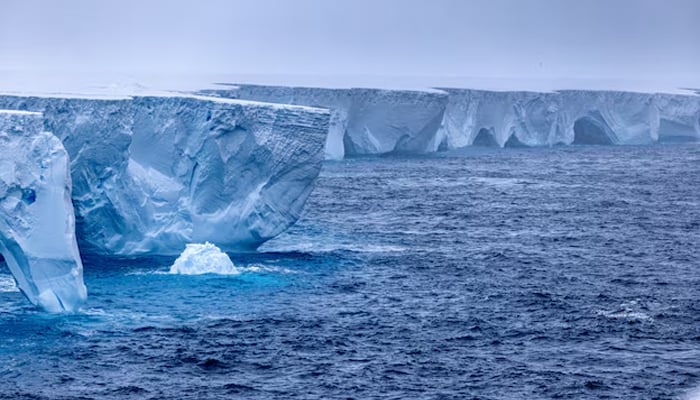Select Language:
A rapid decline in Antarctic sea ice could serve as a tipping point for the Earth’s climate, leading to rising sea levels, shifts in ocean currents, and irreversible damage to marine ecosystems, according to a scientific study published Thursday.
The research, featured in the journal Nature, aimed to provide a detailed look at how global warming is affecting Antarctica, the continent at the South Pole covered in ice. It highlights evidence of swift, interconnected changes in the Antarctic environment that may even sustain themselves over time.
Utilizing data from observations, ice core samples, and ship logs, the study traces long-term trends in the extent of sea ice, highlighting a significant and rapid decrease in recent years. The findings suggest that the current state of Antarctic sea ice has fallen well below its natural historical variability and that these changes are more abrupt, nonlinear, and potentially irreversible than the melting observed at the North Pole.
These environmental shifts are causing ripple effects throughout the ecosystem, some of which intensify the initial changes, explained Nerilie Abram, the study’s lead author. A reduced ice sheet means less solar radiation is reflected back into space, trapping more heat and likely speeding up the weakening of the Antarctic Overturning Circulation—a global ocean current responsible for distributing warmth, nutrients, and regulating the climate.
The loss of sea ice is also increasingly threatening wildlife, including emperor penguins that breed on the ice and krill that feed beneath it. Additionally, warming surface waters are expected to diminish phytoplankton populations, which play a crucial role in pulling large amounts of carbon from the atmosphere.
Abram, a former professor at the Australian National University and now chief scientist at the Australian Antarctic Division, emphasized that Antarctic sea ice might be one of Earth’s critical tipping points. Although reducing greenhouse gas emissions can lower the risk of drastic changes, the study warns that once sea ice starts melting at such a scale, it can initiate a self-perpetuating cycle. Even if global temperatures stabilize, the loss of Antarctic ice could continue over many centuries.







